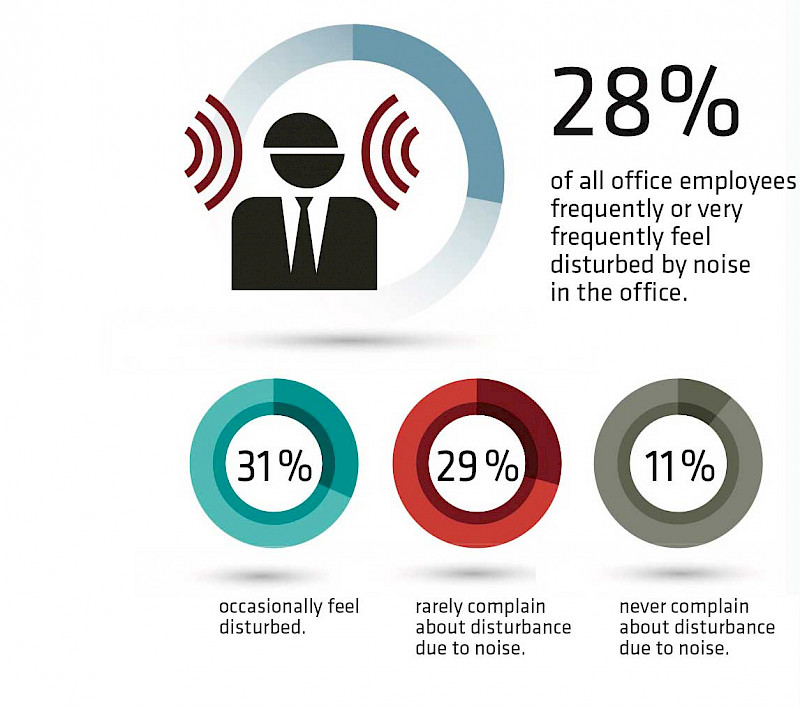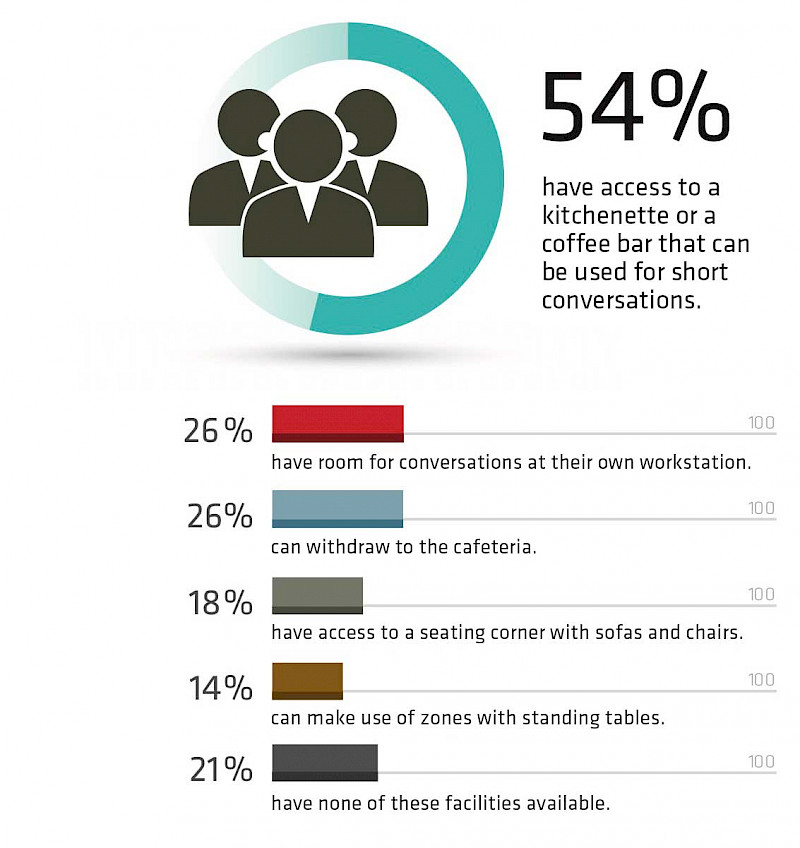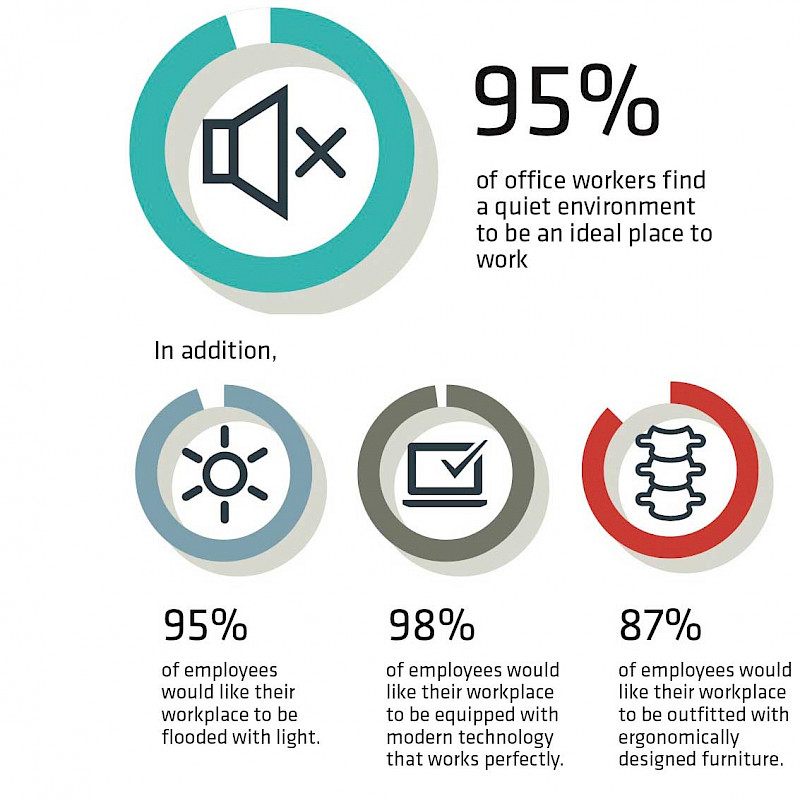Office work is part of the daily lives of 71% of Germany’s working population—that’s about 32 million people. Five and a half million of them spend only part of their working day in an office. But for 26.5 million employees, the office is the place where they spend most of their working time.
Wishes regarding the work environment
So it’s not surprising that more than two thirds of all employees say they set great store by a work environment where they feel a sense of well-being. If an interesting new job were offered to them, they would take a good look at their future work environment before accepting. They know exactly what they would focus on. The top items on their wish list are a quiet work environment, rooms flooded with light, modern and flawlessly functioning technology and ergonomic furniture.
Room for improvement in many areas
Many employees still see significant room for improvement in their current places of work. 39% of employees believe that more attention should be paid to the ergonomic quality of their office furniture, and 40% of all employees think the appearance of their offices could be improved. Employees younger than 30 are especially critical regarding these two points. More than half of them believe that more could be done to promote employee health and a motivating work environment. Only 25% of all the respondents are completely satisfied with the equipment and furniture of their place of work.
Unfortunately, this critical attitude is justified. Less than half of all workers are provided by their employer with a swivel chair for dynamic sitting. The remaining workers are forced to sit rigidly in their office chairs. This is all the more objectionable because only 28% of employees have a desk that permits them to work either sitting or standing. All the others have to spend the whole day sitting down. People working in companies with more than 200 employees have the best working conditions. The worst working conditions are found in workplaces that are used only part of the time.
Noise pollution and non-territorial work
28% of employees are frequently or even very frequently disturbed by noise, and an additional 31% are disturbed by noise occasionally. Of the employees working in rooms that have at least nine workstations, 46% frequently suffer from a high noise level. This problem can be mitigated if employees have the opportunity to search for a workstation that is suitable for a specific activity. As a result, the fact that more and more employees are working non-territorially may be an advantage. In 2019, 9% of all employees worked non-territorially.

Communication zones and free beverages
Even if employees are assigned to fixed individual workstations, they could have opportunities to leave a noisy environment—for example if areas suitable for short meetings or teamwork are provided. But even in this respect, many companies still need to catch up with current trends. A fifth of all workers have no suitable place for spontaneous communication in their work environment.
Companies with more than 200 employees are best equipped in this respect as well, but even in such companies, 13% of the employees say they have no access to communication zones. The amenities that are most often available are kitchenettes and coffee bars, but these alone are obviously not enough. Coffee bars are hardly the right places for a fairly intense discussion or confidential talks. All the same, they are a good beginning, especially if they provide free beverages.

Such an offer is important or very important to 45% of all employees. Among employees under the age of 35, the proportion of individuals who consider such a service very important increases to 59%.
Working atmosphere and workstation equipment
89% of all employees consider the design of the work environment important—even more important than flat hierarchies, working from home and personal career opportunities. But of course the physical workstation is not the only criterion people use to evaluate their own jobs. If they are asked how they assess the quality of an employer, the top items on their list of criteria continue to be the working atmosphere, the behaviour of the managers and the future security of their jobs.
Information about the study
The study is based on three representative surveys conducted in 2019. Between 1,000 and 1,500 office workers participated in each of the surveys.
• Conducted by: forsa Gesellschaft für Sozialforschung und statistische Analysen mbH
• Client: German Interior Business Association (IBA)
• Publication: February 2020
The IBA Study 2019/20 can be downloaded here. [Only available in German]
_____
Photography in this article: IBA





